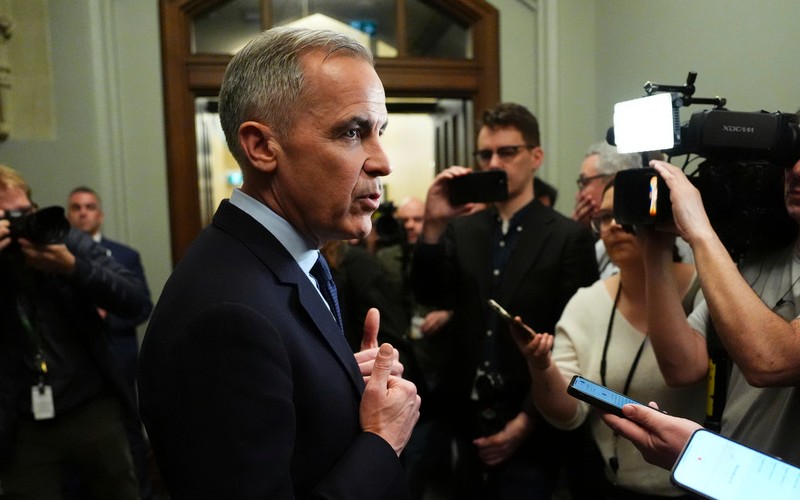Canadians go to the polls in two weeks, April 28, in an unusual federal election in which longtime political leader Justin Trudeau is no longer a key figure after his Liberal Party forced him out.
 Mark Carney, the new Canadian prime minister, has called for parliamentary elections that will decide the party seats in parliament and hence the new prime minister.
Mark Carney, the new Canadian prime minister, has called for parliamentary elections that will decide the party seats in parliament and hence the new prime minister.
The main political opponent for Carney is Pierre Poilievre, the Conservative Party leader, whose populist views and plainspoken speaking style have made him a popular hero among right-leaning Canadians in the liberal-dominated country.
Poilievre, who has eyed the prime minister’s post for year, has also vowed for years to move the Canadian embassy from Tel Aviv to Jerusalem if he is elected to parliament’s top post.
 Carney, meanwhile, is wooing his left-wing voters by taking a stance against Israel in its war with Hamas. At a recent campaign rally, a protester shouted to Carney that “genocide” is happening in Gaza, referring to Israel’s military operation there.
Carney, meanwhile, is wooing his left-wing voters by taking a stance against Israel in its war with Hamas. At a recent campaign rally, a protester shouted to Carney that “genocide” is happening in Gaza, referring to Israel’s military operation there.
"I'm aware,” Carney told the protester. “That's why we have an arms embargo."
Asked later by a reporter to clarify what he was “aware” of, Carney claimed it was “noisy” on stage so he heard the word “Gaza” but didn’t hear the protester state the word “genocide.”
Despite Carney bragging about the arms embargo, which is itself controversial, radical groups have accused Carney and the Liberal Party of using the United States as a go-between to supply Israel with military goods, such as propellants for 155mm artillery shells.

Dr. Charles McVety, president of Canada Christian College, says Carney and his Liberal Party are no friends of Israel but Poilievre is wildly supportive of the Jewish state.
“He very much is a great supporter of Israel and its right to defend itself,” McVety says. “So there's now a very clear distinction between these two candidates on that issue."
Canadian political activist Brian Rushfeldt, who has followed Poilievre for many years, says the Conservative is “quite serious” about his stance on the Canadian embassy in Jerusalem.
“And if he gets elected, it will happen,” Rushfeldt said.







